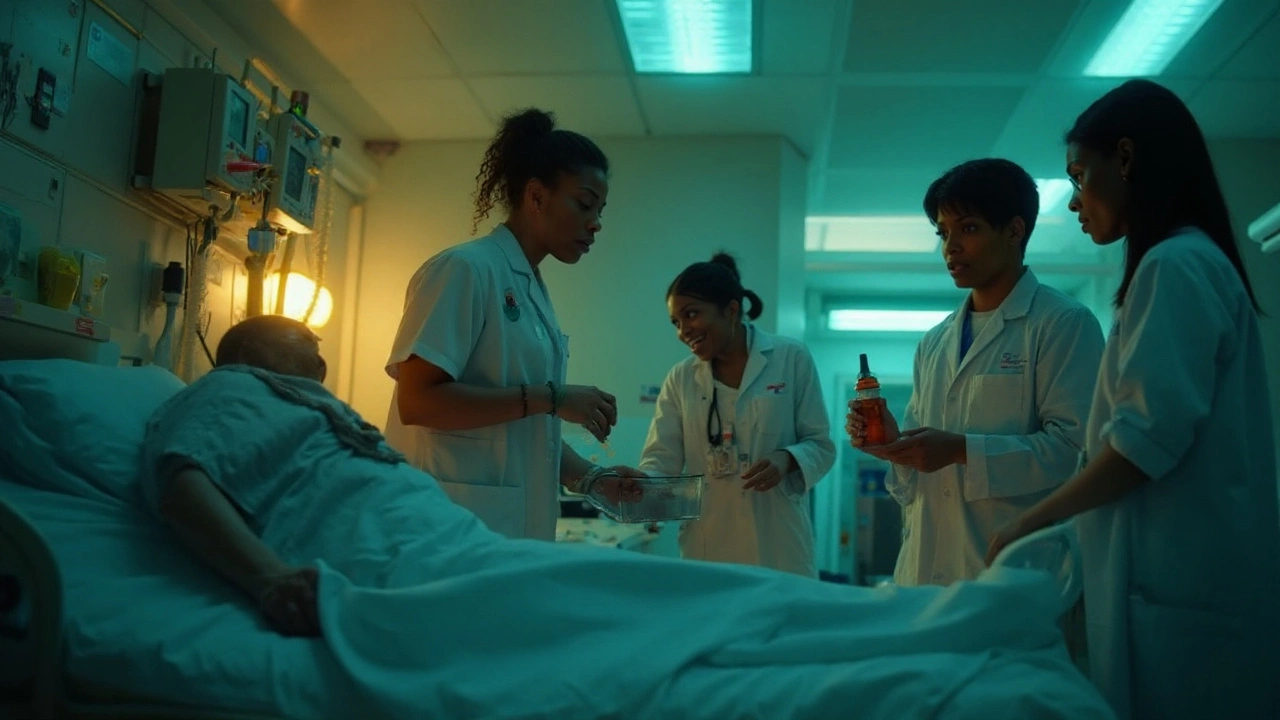Digoxin Toxicity: What It Looks Like and How to React
Digoxin is a common heart drug, but when levels get too high it can turn dangerous fast. If you or someone you know is on digoxin, knowing the warning signs can mean the difference between a quick fix and a serious medical emergency.
Common Signs and Symptoms
Most people think of digoxin toxicity as just a stomach upset, but the reality is broader. Look out for:
- Feeling nauseous or vomiting
- Loss of appetite or a weird metallic taste
- Seeing halos around lights or blurry vision
- Irregular heartbeat – you might feel it skip, pound, or race
- Fatigue, dizziness, or sudden weakness
- Confusion, trouble concentrating, or even hallucinations
If you notice two or more of these together, especially the vision changes or heart rhythm problems, treat it as a red flag.
Immediate Actions and Treatment
The first step is to stop taking the medication until a doctor says otherwise. Don’t guess the dose or try to “fix” it yourself. Call your healthcare provider right away or head to the nearest emergency department.
Medical teams will usually check your blood digoxin level, run an ECG to see how the heart’s beating, and look for electrolyte imbalances like low potassium, which can make toxicity worse. Treatment may involve:
- Administering activated charcoal if the overdose was recent
- Giving an antidote called Digibind (digoxin‑specific antibody fragments)
- Adjusting other heart meds or potassium supplements
- Continuous heart monitoring until levels normalize
While you wait for help, keep the person calm, have them sit or lie down, and avoid giving anything by mouth unless a professional tells you to.
Prevention is just as important as reaction. Always take digoxin exactly as prescribed, never double‑dose, and tell your doctor about any new medicines or supplements, especially diuretics or anti‑arrhythmics, because they can push digoxin levels higher.
Regular blood tests are the gold standard for staying safe. Most doctors will check your digoxin level every few months, or sooner if you develop kidney issues, which can slow the drug’s clearance.
In short, digoxin toxicity isn’t something to brush off. Spot the symptoms early, stop the drug, and get medical help fast. With the right steps, most people recover without lasting heart damage.
Got more questions about digoxin or other heart meds? Our guides break down dosing, side effects, and practical tips in plain language, so you can stay on top of your health without the medical jargon.
Digoxin Overdose: Prevention, Early Signs, and Evidence-Based Treatment
Clear, practical guide to prevent, recognize, and treat digoxin toxicity. Includes red flags, step-by-step care, Fab dosing, and safety checklists.
